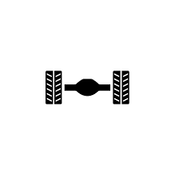|
Dropdeck trailers or flat deck trailers are manufacturing marvels designed to help transport a wide array of cargo and containers. However, when you go looking for a trailer, you need to know what specifications you have, whether you can purchase or rent a commercial trailer or you require a custom flat deck trailer. While nearly every trailer will have similarities in design and construction, the length, weight and purpose will vary. Therefore, when you have a job requiring a trailer transport, consider the following six things. A) Size - What size cargo are you looking to transport? Will you consistently carry containers this size, or will your jobs vary from trip-to-trip? If you only move 20- or 40-foot containers, then you can look for a trailer that size. However, if you carry varying container lengths, then there are manufacturers who make extendable trailers. Knowing the size of your typical cargo will probably be one of the most critical decisions you make in the design and purchase of your flat deck trailer. B) Durability and Resale Value - Next, you will want to think about the durability and resale value of the trailer. While you may have no intention of selling the trailer once you purchase it, businesses rely on the sustainable value of assets, and vehicles are notorious for losing value. However, as tools and machinery are concerned, trailers are capable of maintaining significant value, especially when made from quality materials and properly maintained. Therefore, if your trailer purchase is for a business, consider the time value of your purchase. C) Load Capacity - Before you purchase a trailer, you will need to review local laws and regulations, as well as the load capacity of your trailer. Many flatbed trailers range in capacity from ten to 80 tons. The needed capacity will also alter the design of the trailer. For example, heavier loads will require a chassis with three axles made of high-yield materials. Attempting to carry heavier loads on smaller, less capable trailers may result in damage or injury, and it is likely illegal. D) Axles - Just like there are laws regulating the load capacity of trailers, there are also laws governing the configuration of axles. Therefore, when designing or considering different axle configurations, choose options that are permissible. Also, ensure that whatever you select will support not only the weight of your cargo but the type of wheel assembly you prefer. Purchasing the correct and legal axle configuration will ensure that your trailer remains useful for years to come. E) Tires - When it comes to trailers, the government tries to regulate in their entirety to ensure the safety of others on the roadways as well as the operator. However, those regulations can restrict the number of available options for trailer purchases. For example, some owners feel that a single tire system would suffice for their operations. However, a municipality may not permit such a configuration. Therefore, always check with local trailer regulations before buying anything. F) Use and Function -
Last, you need to know the function and purpose of your needed trailer. For example, are you in need of a trailer that uses a tilt operation for easy unloading or an extendable trailer for a variety of cargo loads? Perhaps you only have a need for a traditional trailer and nothing fancy. Whatever your needs, knowing will make your purchasing decision easier, allowing you to narrow down your search and pinpoint a target budget. In the end, the type of flat deck trailer you need will depend on your specific requirements and the type of cargo or containers you expect to transport. However, if you would like some help to discover your available options, then contact Al Ameen Engineering.
0 Comments
Your comment will be posted after it is approved.
Leave a Reply. |
Archives
March 2024
Categories
All
|
|
We are a 30 year boutique fabrication company located in Dubai with passion in making great industrial equipment. Our mission is to create high quality products which would save time, money and increase productivity.
|
Quick Links |
Services |
Products |
SUBsCRIBE HERESubscribe to our mailing list to get the updates to your email inbox!
|








 RSS Feed
RSS Feed





